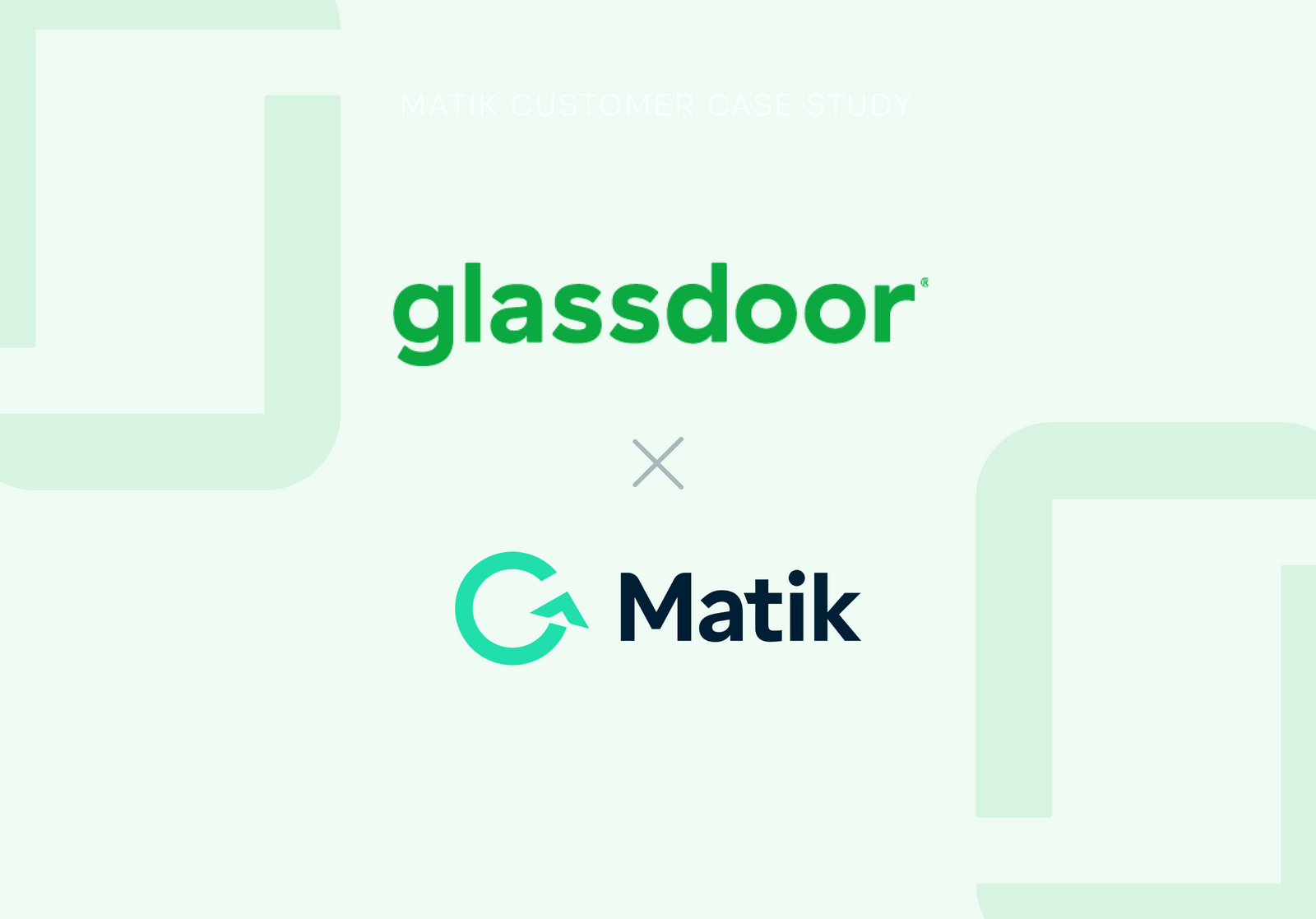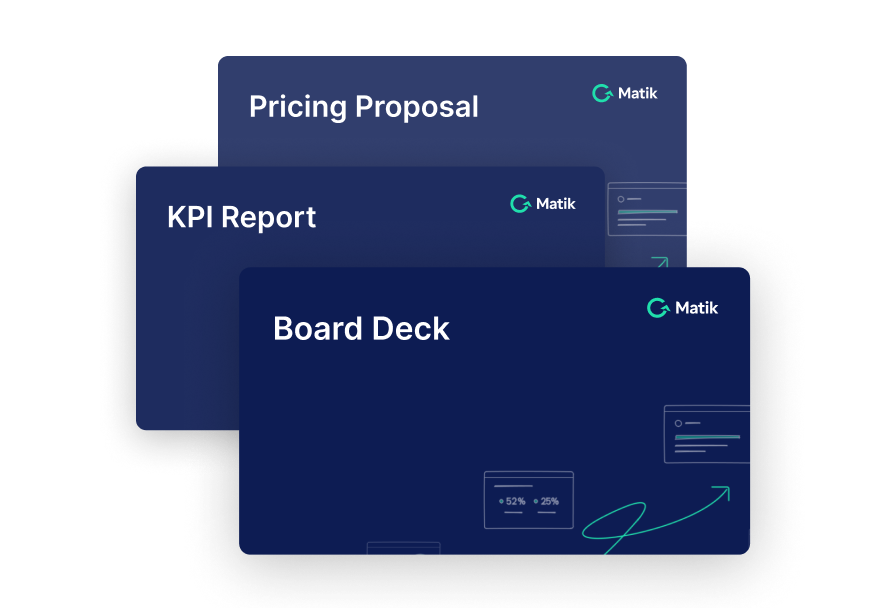Join Our Newsletter
Episode Highlights
SPENCER DAVISON:
I'd love for you to describe the work Glassdoor is doing and your role in the organization.
NICK MANGUM:
Glassdoor is at the forefront of transparency for employers. Our mission is to help everyone find a job and company they love. We go about doing this through what we're calling radical transparency. We want to make sure that job seekers everywhere can find the right information about an employer, whether it's reviews about the company, digging into compensation, CEO approval, and diversity and inclusion. I'd say from an insights perspective, we have a ton of data and we're trying to surface that data to our internal stakeholders on sales and customer success in a way that helps them answer client questions, and helps them deliver data stories that are impactful and relevant and easy to understand for our customers using data storytelling software.
What does insights mean to you? How would you define it within Glassdoor and how do you measure the impact of your team in the organization?
Insights is definitely a unique blend of skills. We're not just crunching data. We're not the ones typically having a lot of those customer client conversations. Like the Wizard of Oz, behind the scenes, we do a lot of the data work, but we also are able to tell a story. When I started at LinkedIn in my first customer insights role, one of the things our director at the time, James Raybould, said was, "what's the ‘so what’?" Okay, we have all this data. But what does it mean? And that's what I really think about when I think of insights.
There's a ton of data out there, anyone can build a chart. But giving clients and customers and users an understanding of why that's important separates a data cruncher and someone who has a customer focus and can really distill the key themes from that data.
What are some of the obstacles or pitfalls that you run into as you're looking at scaling these tools and narratives?
Yeah, that's a good question. I've definitely built a lot of dashboards, tools, and narrative templates in the past. I would say, and I'm guilty of it myself; but I believe in having good documentation and ownership. When you're building scaled tools, you want to make sure it's reliable and it's consistent.
Having continuity, ownership, and accountability with the tools is super important, just to make sure that there is reliability and people are able to use it. When you are developing tools, don't develop it in a vacuum. You should keep in mind the use cases of your end users. How are they using this? Why are they using this?
How can you solicit as much feedback as possible to make sure that they have a say in what's getting built. We have a sense for how conversations are going with clients and their relationships, but we're typically not the ones on the front lines. So it is important to collaborate as much as possible in order to build a tool that's going to be as valuable as possible. Otherwise, you could build a ton of stuff, but it's not going to be used if it's not easy to use or it's not fast.
What are some of the challenges you faced in the past six months as an Insights team?
A lot has happened in the last six months. COVID has upended work in general. At Glassdoor specifically, we've had a new renewed focus on branding. We've started a more formal partnership with Indeed where they are handling the jobs side of our business. And we're actually taking the branding side from their business. So now we're solely focused on branding, which is good, because now we have a North Star. Matik is really going to help us to make this a smooth process. Once we have all the right data access to the right data from Indeed, we can build all the right content.
And we can combine all this stuff really easily. Once we do, which should be pretty soon, we can build out these joint narratives together without having to involve a bunch of different people. It should just be really easy to be leveraged by both Glassdoor and Indeed.
What have you found most valuable out of using Matik? And how has it changed the way your team operates at Glassdoor?
I would say pre-Matik we had a much different process for scaling our narratives. Typically there was a combination of Tableau and other teams [which] felt really inefficient. And coming from LinkedIn where we had these automation tools, I know the power of having it readily available and self-serve.
I'd say, a couple things that I really find valuable about Matik is from our admin side, it's super easy to use, it's really flexible. It allows us to make changes really quickly. I'd say, our new motion for scaling insights and reporting is way different. And so it has been really transformative for us on sales insights, because we're able to scale our work much more efficiently and effectively.
And then from an end user side right now we have customer success as the primary end user and its super straightforward. They don't need to go through some rigorous training to figure out how to use the tool. And so you go in, you select a template, you put in the inputs, and then you get a deck. Very simple. So this is definitely a huge improvement to the previous process that would take days to complete.
And then overall, I feel like the working relationship between the two companies has been awesome. You guys have been working with us in some capacity for what feels like almost two years ever since Matik started. We've had a lot of meetings, there's been a ton of communication, and you're always really responsive.
A lot of the product enhancements have been really cool. So every time there's something new that comes out in Matik we get a lot of really positive reception from our end users because they know that everything that's on your roadmap is typically going to make their lives easier and a more efficient tool for them to use. So yeah, it's been a game changer for us.
And if you were to give one recommendation to somebody just starting off with Matik, what recommendation would that be?
You guys have allowed us to spend quite a bit of time developing before we've rolled out. But one thing I've done that has helped me quite a bit is just spending the time going through your most common and most valuable narratives, evaluating how to scale them, and then prioritizing a development roadmap.
There are a ton of reports and narratives that can be templatized in Matik but having strong project management upfront is super critical. And then you also want to make sure that you're being a huge advocate and evangelist internally. I felt like I was on a roadshow. You need to spend time getting that buy-in. And you need to spend a lot of time making sure that, you know, there's adequate training, there's a successful rollout. And that when you do rollout, you have content that is going to be immediately available and helpful for your end users.
You were very patient with us and gave us a lot of leniency for taking the time to be able to create a lot of great content throughout the pilot and then after the pilot when we did a full rollout. But I think that's been super critical for us, just making sure that we had a good foundation, and we prioritize the things that are most important. So that when our end users were onboarded, they had the narratives, they felt comfortable with them, and they immediately were able to see the value of it.


















